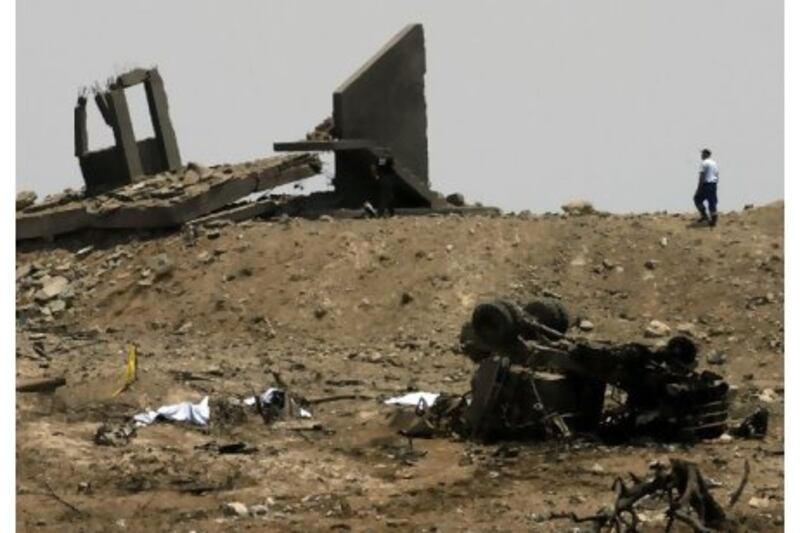MARI // The head of the Cypriot navy, a navy base commander and six firefighters were among 12 people killed early yesterday by a blast at a munitions dump which knocked out the island's biggest power station, police said.
The firefighters were called to the Evangelos Florakis navy base on the south coast of the island, near a popular holiday resort, to tackle a blaze at the dump, which burnt for about an hour before causing a huge explosion.
The blast almost levelled the nearby Vassilikos power plant, which produces nearly 60 per cent of the island's energy, damaged buildings in nearby villages and rained metal on a motorway. All the victims were Cypriots.
The country's defence minister and army chief quit hours after the explosion at the dump, which held confiscated Iranian armaments. A government spokesman ruled out sabotage.
The blast wounded 62 people, shredded the outer walls of two multi-storey buildings and shook olive groves and farming villages for miles around the base.
Farmer Nicos Aspros, who was tilling his field at the time of the blast, said: "My tractor jumped about half a metre in the air. There isn't a house in the community which hasn't been damaged."
In Mari, a village partly protected from the blast by a small hill, windows and doors at Eleni Toubi's small home were blown out and the roof was damaged. "It was huge. I fell out of bed and ran to check on the kids," she said.
The Iranian armaments were confiscated from the Monchegorsk, a ship Cyprus intercepted in 2009 while sailing from Iran to Syria in violation of United Nations sanctions on Iran.
Military sources said they believed all 98 containers of arms, which were kept exposed in scorching temperatures, went up in the blast.
In the capital Nicosia, 65km to the north-east, residents woke to power cuts and jammed mobile networks.
The government spokesma,n Stefanos Stefanou, gave no details of the storage conditions. He did not comment on reports that the containers had expanded in the heat, and that authorities had been dousing the area with water to keep temperatures down.
He said President Demetris Christofias had accepted the resignations of Costas Papacostas, the defence minister, and Petros Tsalikidis, the army chief.
Cyprus stored the Iranian munitions under pressure from the United States in January 2009. In an account of the incident disclosed by WikiLeaks, the US embassy in Nicosia described Cypriot participation in the exercise as "half-hearted".
The island was hit by rolling power cuts as authorities tried to juggle demand during the peak summer season. The agriculture ministry said all water desalination plants would shut.
Britain, which has troops stationed on Cyprus, said its personnel were on standby to help.
Authorities called on Cypriots to switch off non-essential electrical equipment and the commerce ministry urged residents to use their own generators where possible.






